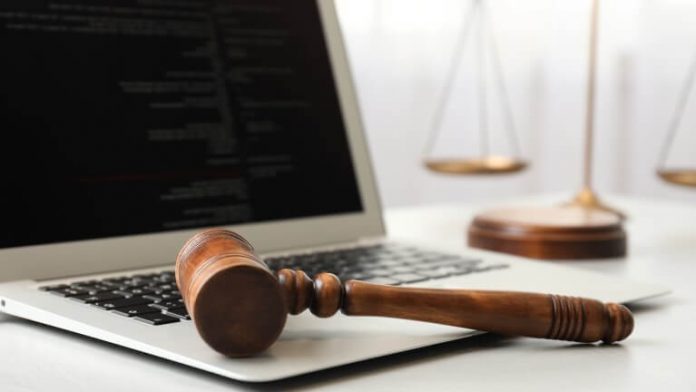This article is written by Sharad Yadav from the Institute of Law, Nirma University. This article will help you to understand all aspects relating to GAAR and case laws which will help you to understand this clearly.
Table of Contents
Introduction
We know that most of the revenue which the government generates is from taxes which they collect from individuals, organizations, etc. Everyone wants to benefit from the tax imposed on them. Many times they indulge in malpractice to get saved from taxes. The General Anti Avoidance Rule (GAAR) was brought about by the Indian government to curb tax evasion and avoid tax leaks. In India, the GAAR provision was brought by the government after the famous case of Vodafone International.
What is the General Anti- Avoidance Rule (GAAR)
General Anti Avoidance Rule (GAAR) is an anti-tax avoidance law for keeping a check on the businesses that entered into an agreement with the objective of avoiding tax. Chapter X-A of the Income Tax Act, 1961 of India deals with the concept of GAAR. GAAR was introduced in the year 2012 during the budget session in 2012 by then Finance Minister Pranab Mukherjee. Article 265 of the Constitution of India gives power to the government to levy or collect tax from the people of India. It is generally presumed that every citizen is liable to pay reasonable tax within the provisions of tax statutes. The person escaping from paying tax generally would be liable for evasion under Indian laws. Sometimes organizations try to lower their liability to pay tax to the government which is known as tax avoidance. GAAR was introduced by the Finance Act, 2012, with the aim that any planning or arrangement which involves any tax benefit, whether done directly or indirectly, would be impermissible and liable under the provision of said law. Black Law’s dictionary defines ‘tax avoidance’ as minimization of one’s tax liability by taking advantage of legally available tax planning opportunities.
Difference between tax evasion and tax avoidance
- Tax evasion is when a person or organization does not pay tax to the government which they have to pay. This is completely illegal and the person or company can be held liable for prosecution.
- Tax avoidance is not illegal. When a person or organization tries to avoid tax by taking legal recourse to legal actions. Let’s understand this through an example – when an employee invests a part of his income in some funds, then it can be called tax avoidance.
- Tax avoidance, which is exercised by large corporate firms, can cause huge losses to government revenue. GAAR was brought specifically against such a type of transaction when the intention is to avoid paying tax to the government agency, hence getting benefit out of this.
How does GAAR work
GAAR is based on the doctrine of substance over form in which the real intention of parties is seen when they enter into an agreement to determine the tax consequence, irrespective of the legal structure of that transaction or agreement. There are four tests which are given below:
- The arrangement creates obligations/rights that are not at arm’s length.
- Arrangement or transaction results in misuse/abuse of a provision of tax laws.
- It lacks commercial substance.
- The transaction was not carried out in a bonafide manner.
If the concerned authority thinks that the main purpose of the arrangement or transaction is to avoid the tax and get benefit out of that, and even if only above 1 out of 4 conditions is satisfied, then the tax authority has the power to declare the transaction as impermissible and characterize the entire transaction in a manner that it is maximizing the tax revenue
Let’s take a few examples to understand the GAAR provisions.
Situation 1
Suppose X sets up a company for manufacturing in a developed tax exempted area. After the production of the product, X then transfers the product to other connected manufacturing units and shows it as a manufactured product in the tax-exempted unit while only packaging of the product is done there.
Reason – In this situation, the provision of GAAR would be applicable. It is clear from the example that X makes this type of arrangement to avoid tax or we can say that the main purpose of this type of arrangement is to get benefits from tax. There is a misuse of tax provisions. Hence, the competent authority can invoke the GAAR provision under this condition.
Situation 2
Suppose Y sets up a company in an area that is not very developed by investing a substantial amount of capital into it and carries out the production of the product. Y claims tax deduction on the sale of such products because of low tax imposed by the government in underdeveloped areas.
Reason – In this situation, the provision of GAAR would not be applicable. Here, we can see the main purpose of the company’s establishment is to get benefits from tax, but this is a case where taxpayers taking advantage of the low tax incentive is provided by the government. Hence, the GAAR provision would not be applicable in this case.
Situation 3
An Indian company ‘X’ buys goods from the USA and sells them in Nepal. Its world income will be made taxable in India. In order to avoid tax in India, company ‘X’ incorporates another company in Cyprus which is zero tax jurisdiction.
Reason – In this situation, the provision of GAAR would be applicable. This is done by the company to show that the sale takes place in the company Cyprus. Since there is not any commercial reason for undertaking the sale throughout the company in Cyprus, hence the provision of GAAR can be invoked in this situation
Procedure for invoking GAAR
- Firstly, the assessing officer makes a reference to the tax commissioner about a case which is a potential GAAR case.
- After making the reference, the tax commissioner issues a notice to the taxpayer after verifying that that arrangement is Impermissible Avoidance Arrangement (IAA).
- Then, the taxpayer shows the document if they are having to claim that their arrangement is not IAA.
- After filing the response, if the Tax Commissioner is unsatisfied with the answer, the case is referred to the approving panel.
- The approving panel examines all aspects of the case and then issues directions directly to those which would apply to the taxpayers and tax authorities.
- Finally, the assessing officer makes an order to the taxpayer.
Relevant case laws
Union Of India And Anr v. Azadi Bachao Andolan (2003)
In this case, it was argued before the Court that any type of planning with the aim of tax avoidance must be struck down in light of the case McDowell v. the Commercial Tax Officer (1985). The court rejected this argument and upheld the legitimacy of tax planning. In this case, the apex court referred to the judgment of the privy council in the case Bank of Chettinad Ltd. v. CIT (1940) which accepted the principle which was laid down in the case IRC v. Duke of Westminster (1935), where the court laid down that” every man is entitled, if he can, to order his affairs so that the tax attaching under the appropriate Acts is less than it otherwise would be”. The judgment was the law when the Constitution of India came into effect. According to Article 372 of the Constitution, all laws in the territory of India shall be in force unless it is repealed or amended by the competent authority. Hence, the principle which was laid down in Westminster is still applicable. The court stated that – “we are unable to agree with the submission that an act that is otherwise valid in law can be treated as non-est merely based on some underlying motive supposedly resulting in some economic detriment or prejudice to the national interests, as perceived by the respondent”.
However, the tax revenue authorities challenged various forms of a transaction entered by the taxpayers, especially cross-border transactions.
Vodafone International case (2007)
In this case, Vodafone international decided to expand its business in the Indian mobile phone industry by buying Hutchison Essar. To avoid the tax, Vodafone took the roundabout route. Its subsidiary exchanged a case for shares with a similar holding company for Hutchison Essar outside India in the Cayman Islands. The deal had happened outside Indian territory where the Indian tax authorities have no jurisdiction. The Indian Tax Department initiated the proceedings against Vodafone for recovery of Rs. 22,100 crores. Vodafone approached the Bombay High Court against the same, but it ruled against the company and stated that the transaction was completed when all the rights and entitlements of Hutchison’s Indian assets were transferred and stated that the Indian authorities have the right to pursue Vodafone International.
Unhappy with the Bombay High Court’s decision, Vodafone moved to the Supreme Court where the main issue which was largely discussed was a deliberate case of tax avoidance or simple prudent planning of saving tax. After a lengthy discussion, the court ruled in favour of Vodafone International and stated that the sale did not amount to tax avoidance. It further stated that Vodafone no longer had to pay taxes on this transaction. After the happening of the case, the government introduced the new tax bill amending the existing regulation and brought in the General Anti Avoidance Rule (GAAR) which then forced Vodafone to pay tax. It was a retrospective legislature which means they gave power to the tax authorities to reassess transactions dating back to 1962. After bringing up new legislation, if the matter went again in the Supreme Court, then the court will rule against Vodafone.
Vodafone approached the Permanent Court of Arbitration at Hague and stated the gross violation of fair and equitable treatment promised under the two bilateral treaties (Indian-Netherland Bilateral Investment Treaty and Indian-UK Bilateral Investment Treaty). An international arbitration tribunal, based in Hague, ruled in favour of Vodafone and stated that India had breached the terms of the agreement and it must stop collecting tax from Vodafone. The Indian government was further directed to return Rs. 45 crores, which they had collected so far, and an additional Rs. 40 crores to compensate them for all the charges borne at the tribunal.
Criticism of GAAR
Many people criticize the provisions of GAAR because people think that its provisions are too harsh. There was, and continues to be, a fear amongst companies that the tax authorities will apply the GAAR provisions regularly and torture them even if they are honest taxpayers. It is often criticized by people because it provides discretion to the tax authority which can be misused. The Standing Committee in the year 2012 responded in its report that GAAR provisions should ensure that a person who is genuinely entering into a valid transaction should not be harassed. It suggested that one should be on the tax authorities and not on the taxpayer for proving the tax avoidance. The committee also suggested an independent body to act as an approving panel which would ensure that there is no impartiality.
Recommendations of the Parthasarathi Shome Committee
The Parthasarathi Committee had recommended in its report that the GAAR should be deferred for three years. The committee also suggested that the income from the sale of listed securities should be fully exempted from paying tax. Investors from Mauritius and Singapore may also look forward to more certainty on entitlement to tax treaty benefits. The committee’s recommendation was as was expected by the investors. GAAR should be used as a last resort when there is no option left.
Conclusion
Collecting taxes from organizations is very important for the government because this money is used to bring new policies into the country, which eventually help the society in various ways, such as building roads, highways, bridges etc. GAAR was brought about by the government to collect the taxes from organizations that intentionally make arrangements to avoid paying taxes. It is good for the country but there are certain loopholes also present in this which needs to be addressed by the government. There is a fear among many companies that they will be harassed by the tax authorities under GAAR even if they are honest taxpayers. This is what needs to be changed.
References
LawSikho has created a telegram group for exchanging legal knowledge, referrals, and various opportunities. You can click on this link and join:
 Serato DJ Crack 2025Serato DJ PRO Crack
Serato DJ Crack 2025Serato DJ PRO Crack











 Allow notifications
Allow notifications


